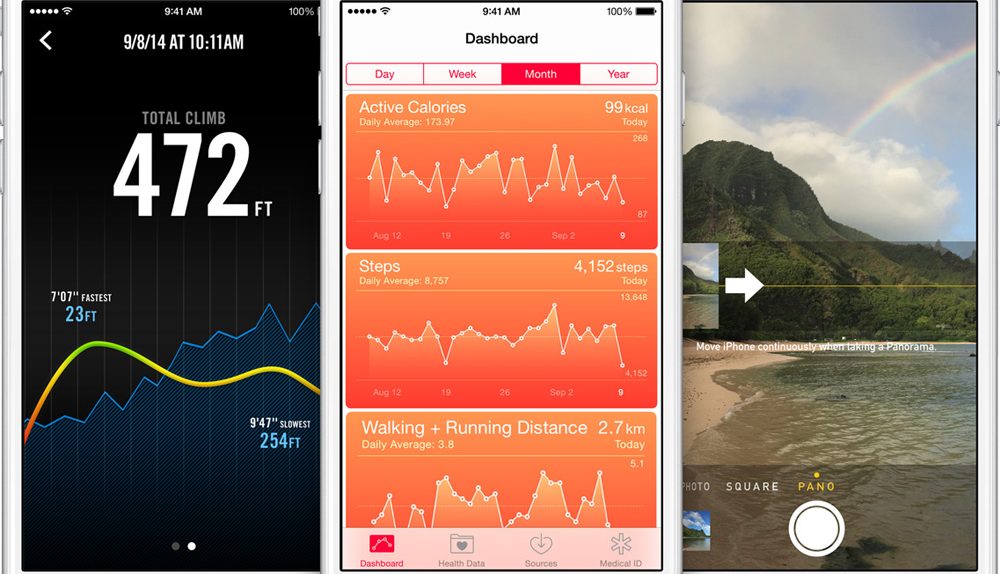Apple delayed the launch of HealthKit apps when it released iOS 8, even though Health is one of the main features of this year’s iOS update. The company then released iOS 8.0.1, which should have fixed HealthKit problems and allowed app developers to update their apps with HealthKit integration, but the update was quickly pulled as it was found to cause serious problems for iPhone 6 and iPhone 6 Plus users.
FROM EARLIER: After a bad rollout for iOS 8.0.1, Apple has released iOS 8.0.2
Thankfully, Apple quickly released iOS 8.0.2, fixing the iPhone 6 issues and finally allowing developers to publish their HealthKit-enabled apps. One of the first health-related apps to be listed in the App Store on Friday is FitPort, 9to5Mac reports. The app can track various health and fitness parameters, and sync with iOS 8’s Health app, if the user so desires.
When configuring FitPort, users will be able to select what kind of Health information to share with the app, something they’ll also be able to do with any other HealthKit-enabled app in the future. Users have to give explicit read and write permissions to HealthKit apps in a settings-like screen that’s part of iOS, and pops up when setting up Health Access in an app.
On the application’s App Store page, the company says that FitPort is “used as a dashboard to check your stats, but you can also input your data manually, and the data is stored securely in Health app.” The company also reveals that so far, the app can track walking and running distance, active calories, dietary calories, weight and body fat, with others promised for future updates.
While it’s likely that many health apps will include HealthKit functionality in the near future, Apple is yet to feature HealthKit apps on its main App Store page.
Screenshots showing the Health UI overlay that will be available to users in all HealthKit apps follow below.






